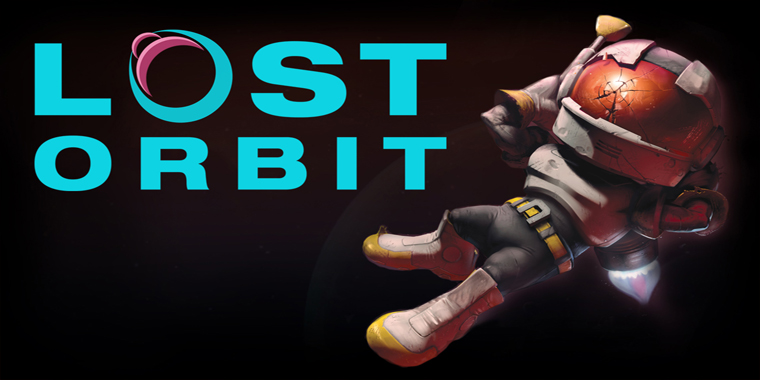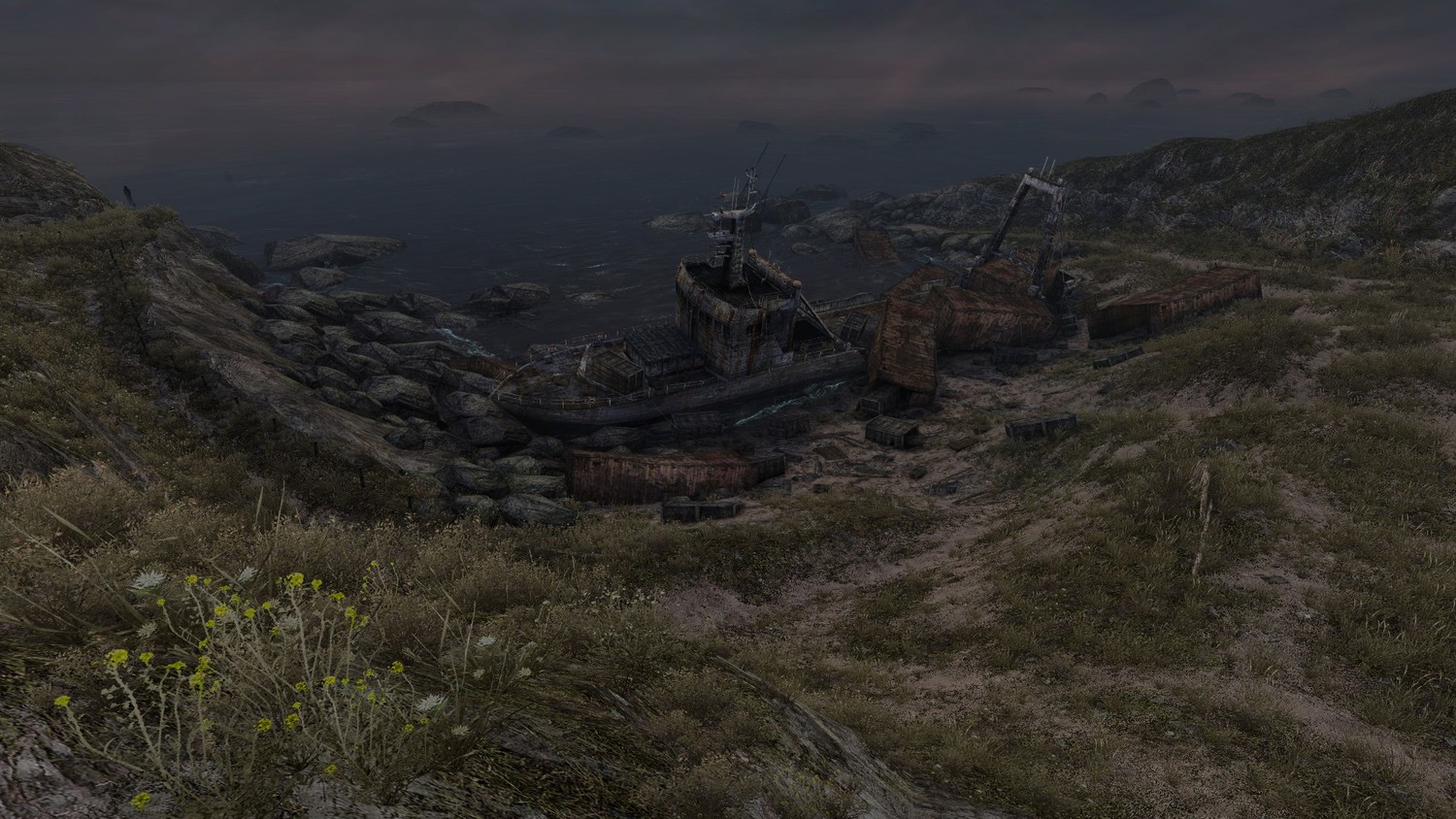
Review: LOST ORBIT
Posted by Eric G on May 9th, 2015 | 0 Comments | Tags: Lost Orbit , Pixelnauts
The opening sequence in LOST ORBIT hints that the game is going to host deep musings on purpose and existence. An early quote casts the protagonist as “a worker bee who didn’t see the big picture.” Later on, we’re informed that “his name was Harrison, he was hungry, and he wanted to go home.” Throughout the entire trek across multiple solar systems, there are in fact several such musings that create a relatively deep story with a minimal amount of exposition. You actually begin the game alone in space; a solid start to any story.
While repairing a satellite, Harrison’s ship explodes. Now he must find a new directive to follow; a new occupation: survival. Once in control of Harrison, you learn pretty quickly how to pilot him. The left analogue stick will move around while the X button will speed you up. The primary objective is to stay alive amidst various obstacles in order to return to your home system. A secondary objective appears in the form of shiny hunks of metal floating in space: Obtainium. By the end of the fourth level or so, you’ll meet your constant companion, Atley Null. Atley saves Harrison from a tough spot, questioning its action altogether. This questioning becomes a running theme for the remainder of the game. At this point, you’ll realize that Atley is the narrator of the story.
LOST ORBIT‘s gameplay is described by developers PixelNAUTS as being a “deadly dodge-em-up.” It’s a spot-on description, marrying the scrolling screens of shmups and the core survival objective of the game. At first, there are stationary hunks of space rock to dodge. The second level introduces the player to screen-wrapping – flying off of one side to appear on the other – and the augmentations to gameplay continue varying from then on. Asteroids fly across the screen and smash into pieces, planets can be orbited for refueling, jump-pads fling you over rubble, and there are even some pseudo-enemies that latch onto your helmet and cause visual discomfort.
The graphics play into the overall aesthetic really well. When you’re not boosting too fast, it’s calming to take in the vast, galactic sites. A handful of layers are staggered in the background to create some wonderful parallax scrolling while colorful orbs meander across the screen to spatter stars across the spacely canvas. It feels like you’re floating along in the middle of nowhere, which is exactly what the game intends to achieve. The musical offerings are fantastic. I especially like the synthesized house jam that plays at each level’s completion.

There is a ranking system for each level that takes speed, obtainium collection, and deaths into account. In order to receive a platinum rating, you’ll have to zoom through the level, collect each piece of obtainium, and not die (not even once). Here’s a montage of examples. The speed criterion can’t be met by simply holding down the X button. In addition, you’ll have to upgrade your thrusters and near-miss planets a la Crazy Taxi for speed boosts. Don’t be surprised if you find yourself replaying a 1:30 long level for upwards of a half hour, trying to perfect your swervings in the constant pursuit of platinums. The upgrade system includes three categories: Utilities, defenses, and mega boost. The utilities section includes a barrel roll, the defenses include air brakes and a bomb to destroy nearby objects, and the mega boost section includes modifiers on an extra boost button. The best thing about the upgrade system is that it’s customizable. The distance of the barrel roll can be tinkered with, the power of the boost can be changed, and you can completely re-spec at any time for no penalty. The point of the game is not to choose your class wisely for fear of later penalization, but to experiment and find your comfort zone… in space.
LOST ORBIT‘s biggest success is its balance of ingredients, so to speak. The flying about and dodging junk portion of the game is simple and fun. The music and graphics are tight. My favorite ingredient, though, is the overarching narrative. The story consistently poses questions that could cause pause in anyone’s daily routine. Atley feels a range of emotions and has to put himself in check every once in a while. For instance, after wondering if it had felt pity for Harrison, it runs a diagnostic on itself to make sure it’s still working correctly (implying that emotions = not working correctly). It also has a dark, cynical sense of humor about the whole situation. When making fun of Harrison’s lack of complex math skills, Atley quips, “I decided to examine his brain post-mortem. I added a reminder to my calendar!” Every few stages, you’ll play through a slower section wherein Harrison recollects on his life at home. He’s not from Earth, mind you, but the stories of camping and spending time with family sound strikingly similar to how some of us spend our time when we can. All of the memories provide great characterization, but the one that I remember clearly is when Harrison is starving for food, remarking that “there isn’t a thing in the galaxy that doesn’t taste better without grill marks.” This isn’t just a game about dodging rocks, it turns out. It’s about companionship (even if out of circumstance and/or boredom) and realizing that mindlessly following orders might lead to the feeling of being lost in space.
A copy of this game was provided by the publisher for review purposes. For more info on our review policy click here.
General Info
- Developer: PixelNAUTS
- Publisher: PixelNAUTS
- Price: $11.99
- Genre: Arcade, Dodge 'em up, Speed
- Players: 1
Score:
What I Like:
- Great soundtrack
- Surprisingly deep narrative
- Voice acting and dialogue
- Tight, simple gameplay
What I Dislike:
- Minor framerate drops here and there










































